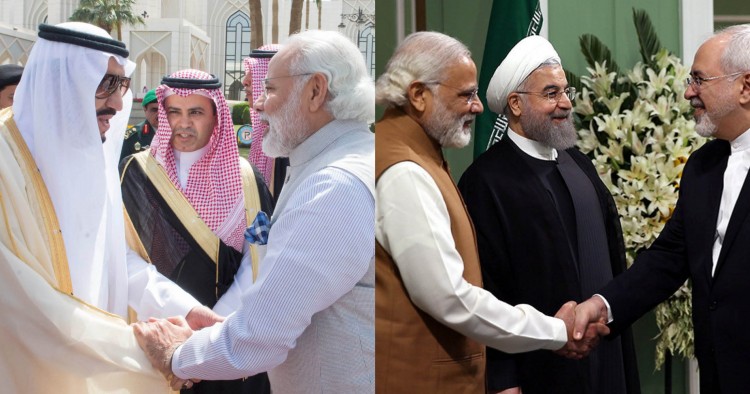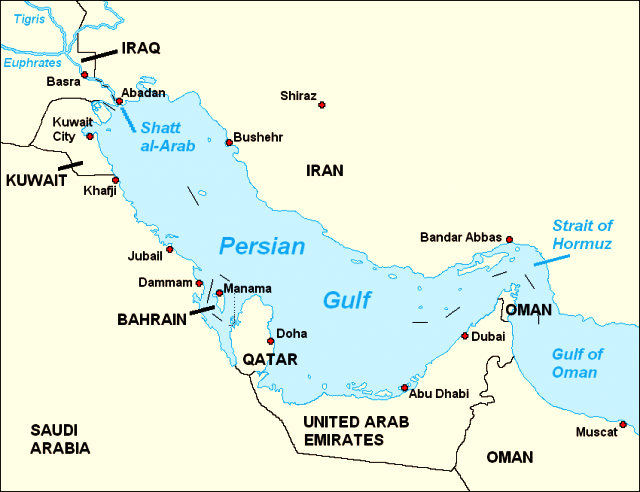From UPSC perspective, the following things are important :
Mains level: India's evolving relations with the Gulf

Central Idea:
The article discusses the significant transformation in India’s relations with the Gulf region under Prime Minister Narendra Modi’s leadership, highlighted by recent diplomatic achievements such as the inauguration of a Hindu temple in Abu Dhabi and the release of Indian ex-naval personnel from Qatar. It identifies five key factors contributing to this transformation: diplomatic efforts, political engagement, religious perceptions, economic collaboration, and counter-terrorism cooperation.
Key Highlights:
- Modi’s proactive diplomacy in the Middle East, contrasting with the previous administration’s limited engagement.
- The shift from transactional to strategic economic ties, recognizing the Gulf’s growing influence in global capitalism.
- Improvement in religious tolerance in the Gulf, symbolized by the construction of a Hindu temple in Abu Dhabi.
- Enhanced counter-terror collaboration between India, Saudi Arabia, and the UAE.
- The potential for deeper defense cooperation and India’s role as a regional security provider.
Key Challenges:
- Historical religious tensions and the need to overcome past perceptions.
- Maximizing defense collaboration potential amid shifting regional geopolitics.
- Ensuring sustainable economic partnerships beyond oil purchases and labor exports.
Main Terms:
- Diplomacy
- Political engagement
- Religious tolerance
- Economic modernization
- Counter-terrorism collaboration
- Defense cooperation
Important Phrases:
- “Transformation of India’s relations with the Gulf”
- “Personal connection with the emirs”
- “Gulf’s emergence as a major center of global capitalism”
- “Growing religious tolerance”
- “Counter-terror collaboration”
- “Regional security provider”
Quotes/Useful Statements:
- “Modi’s proactive diplomacy contrasts with the previous administration’s limited engagement.”
- “The shift from transactional to strategic economic ties is crucial.”
- “Enhanced counter-terror collaboration signals a new phase in regional security.”
- “The construction of a Hindu temple in Abu Dhabi symbolizes growing religious tolerance.”
- “India must maximize defense collaboration potential amid shifting regional geopolitics.”
Examples and References:
- Narendra Modi’s 15 visits to the Middle East contrasted with the previous Prime Minister’s limited engagements.
- The inauguration of the Hindu temple in Abu Dhabi and the release of Indian ex-naval personnel from Qatar serve as tangible examples of improved relations.
- The establishment of the I2U2 group and the India-Middle East-Europe Economic Corridor illustrate India’s reoriented geopolitical engagement.

Facts and Data:
- Modi’s 15 visits to the Middle East compared to the previous Prime Minister’s four visits during the UPA rule.
- The release of Indian ex-naval personnel from Qatar following their espionage charges.
- The establishment of the I2U2 group and the India-Middle East-Europe Economic Corridor.
Critical Analysis:
- The article provides a comprehensive overview of India’s evolving relations with the Gulf, highlighting both achievements and challenges.
- It emphasizes the importance of Modi’s proactive diplomacy and the need for deeper economic and defense cooperation.
- However, it also acknowledges historical tensions and the complexities of navigating religious and geopolitical dynamics in the region.
Way Forward:
- India should continue to strengthen diplomatic ties and capitalize on economic opportunities in the Gulf.
- Deeper defense collaboration and regional security cooperation should be prioritized.
- Efforts to promote religious tolerance and overcome historical tensions are essential for fostering long-term stability and prosperity in the region.
Get an IAS/IPS ranker as your 1: 1 personal mentor for UPSC 2024
